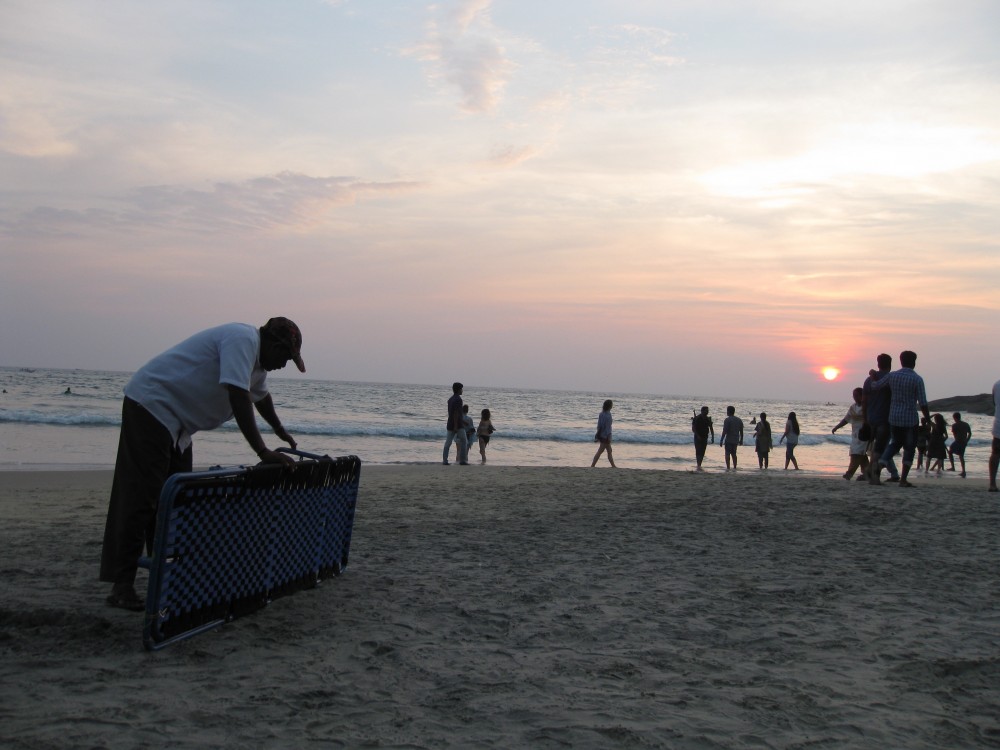
From the start, it was an absurd proposition: we would leave Trivandrum at 3AM to get to Ponmudi early enough to hike to “sunrise rock” and see the sun rise at about 6:30 over the Western Ghats. Shriya Singh, the resourceful grants or Resource Mobilisation Manager at Pallium India, had a friend in her cycling club who made the arrangements with a Forest tour guide, Sarath. Shriya, true to her title, also mobilized a driver, Satheesh, who used to work at Pallium India.
The drive to Ponmudi was somewhat surreal. It is a route that we know well from home visits—tangled with buses, auto rickshaw taxis and motorcycles driving the 2 lane road in 3, sometimes 4 lanes. However on a Sunday at 3am, we sped through the streets and onto country roads with virtually no traffic or even people. There was a lone dog or two on the streets, and an occasional street light. The world looked abandoned.
And in 55 minutes we were at the forest edge with a gate barring our passage. Satheesh knocked on the door to awaken the official to let us pass. The gate is, in part, to make sure wild animals are not hurt by speeding vehicles. It is not officially to be opened until 8am. We were over 2 hours early. The official called the tour guide to make sure that our story was legitimate. And then the official woke up the “gate opener” to open the gate. I would have been happy to open the gate and let him sleep.
And on we went, picking up the official Forest Guide, Sarath, along the way. The guide is “a tribal”—a term that has never felt clear to me. I have come to understand that the tribal people are people who were socially and geographically isolated (in forests in Kerala) , with defined spiritual beliefs. There are about 100 million tribal people in India. He spoke little English (except “Malabar Grey Hornbill”). We arrived too early to start the hike so we waited in the cool temperatures at the top of the mountain.
We arrived at sunrise rock. The clouds added beauty. Thanking Christopher Cantu for all the photos in this blog (except a few).

We saw a Malabar Grey Hornbill. Here is a picture of it that I copied as my picture did not capture the yellow beak.

We briefly saw a Indian bison. Also a copied photo.

No elephants. I feel about wild elephants the way I feel about grizzly bears. Best not to meet them hiking.
The vistas were breathtaking.

Sarath never broke a sweat, and while we were peeling off extra layers, he remained with his jacket on.

The company was fun:


Having just recovered from jet lag, I wondered if self care should involve more sleep deprivation. However the awe of skies, mountains, winds, bird sounds renew me in ways that music and prayer renew others.
Thank you Shriya!

Here is your moment of Zen.






